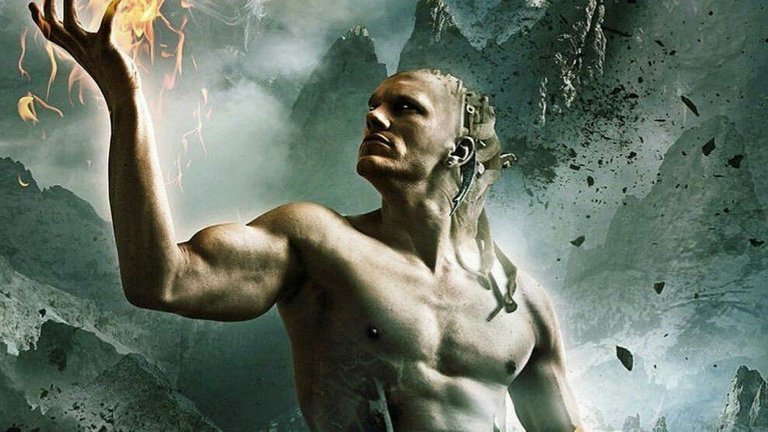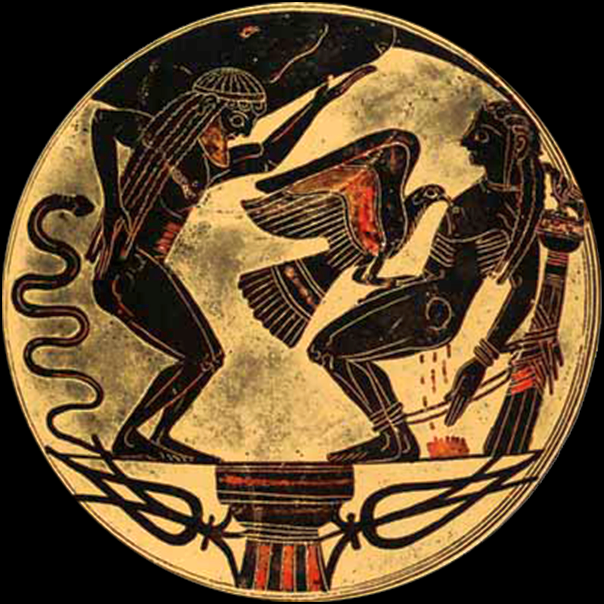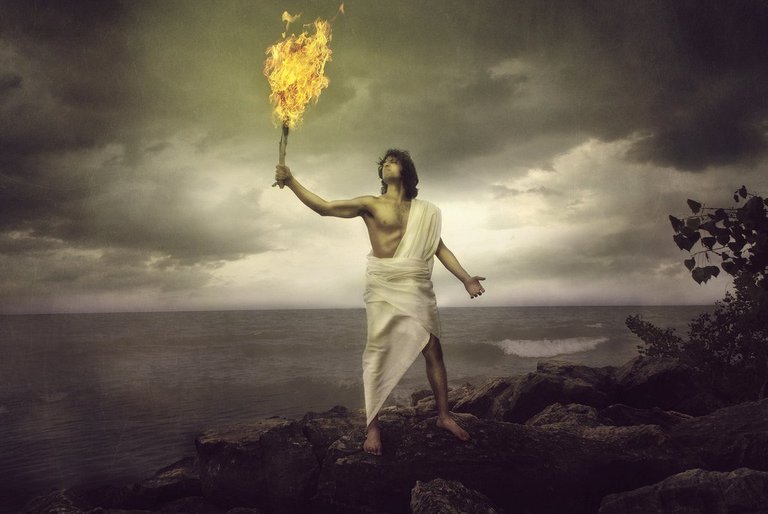
Prometheus the firebringer and teacher of the humans
Prometheus belongs to the gods' race of the Titans. Like all beings, he is subject to the rule of the godfather Zeus. In a pet sacrifice he seizes a trick to deceive Zeus; He leaves him only the worthless parts of the sacrificer, and keeps the edible flesh for the people, since they are his proteges. To punish him, the angered Zeus denied the mortal possession of the fire. Prometheus then takes the fire from the gods and brings it to man. That is why he is bound by order of the father of gods and forged in the wilderness of the Caucasus Mountains. There an eagle regularly visits him and eats his liver, which is always renewed. It is only after a long time that the hero Heracles relieves the Titans of this agony by killing the eagle. Finally, Prometheus is pardoned by Zeus and regained his freedom.
As a firebringer and teacher, Prometheus is the author of human civilization. According to a variant of the myth, he even created, as creator or contributor to the creation, the first humans of clay and equipped with characteristics. However, mistakes were made, the consequences of which are deficiencies under which humanity has suffered since then. In the mythical tradition, a brother of Prometheus, the impious "after-death" Epimetheus, who is involved in the work of creation, is also responsible for these defects. Epimetheus caused great disaster by interfering with the advice of his forbearious brother on the seducer Pandora sent by Zeus.

In the earliest ancient tradition at Hesiod, Prometheus is a cunning and haughty deceiver who is rightly punished for his crime. On the other hand, the tragedy Prometheus bound to the poet Aeschylus draws a very advantageous picture of the Titan. The dramatist glorifies Prometheus as a benefactor of mankind and opponents of tyrannical Zeus.
Already in antiquity the fate of Prometheus was an impressive literary subject and a popular motif of the visual arts. Numerous poets, writers, painters, sculptors and composers have been working on the material since the Renaissance. The myth has also often given rise to philosophical reflection. From a religious-critical point of view, Prometheus is the prototype of the courageous rebel who initiates the liberation of ignorance and religiously-based oppression. In modern times, he is a symbolic figure for scientific and technological progress and the increasing domination of man over nature. For this reason, he is judged differently according to the location of the philosophy of history: for optimizing progress he represents an allegory of the emancipating mankind; Civilization critics, on the other hand, consider the "promethean" impulse to be ambiguous or questionable, and problematize man's urge to be as powerless as possible, godlike.

Great article